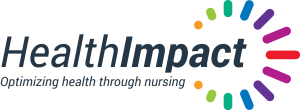

Clinical Cancellations Prompt NovEx to Strategically Partner with HealthImpact to Provide Online Clinical Replacement Simulation Program
Nashville, TN 18 March 2020 – The COVID-19 pandemic has forced universities and colleges to cancel student nurse clinical rotations and mandate online-only instruction. Without completing the requisite clinical instruction, student nurses are at risk for not graduating or being ineligible to sit for NCLEX exams. This will have a significant impact on the workforce and institutions that rely on these graduates to fill vacancies.
In response to this critical and urgent need, NovEx Novice To Expert Learning has strategically partnered with the California Simulation Alliance at HealthImpact. Together, we bring students and faculty nationwide the virtual clinical replacement simulations (MedSurg Clinicals I & II), which were created by Drs. Patricia Benner, Patricia Kyriakidis, and Tom Ahrens.
NovEx patients, or NovE-Cases, are unique and based on highly interactive, authentic patient situations that unfold as the student cares for the patient as the nurse. The NovE-Cases actively engage learners to be immersed in each situation and to think and act like actual clinicians.
To better assist faculty, NovEx tracks students’ clinical performance in real time to enable monitoring student progress, pinpoint knowledge and performance gaps for immediate remediation, and track hours spent in “clinicals”. NovEx Performance Analytics enables faculty to view and download students’ actions (e.g., assessments, evidence-based practice interventions, symptom management, comfort care, patient education) throughout their care of each patient.
NovEx uniquely features essential, realistic attributes with proven practice outcomes:
- A focus on early warning signals to improve safety and reduce failure-to-rescue
- Development of clinical thinking & reasoning without prompts or answer selections
- Priority clinical judgments based on the latest scientific evidence and highest priority interventions
- Real patient data and their responses to care teach reliable illness trajectories
- Every patient offers students the ability to individualize care (e.g., comfort, safety, patient education)
- Real-time quantifiable tracking of students’ care of the patient (e.g., click streams)
- Large number and variety of patients at a low cost
Simulation may be used for clinical experiences depending on each state’s regulation or rules, with many states allowing for 25%-50% of clinical hours in simulation. For programs that have not yet reached the maximum allotment of clinical hours during this national emergency, NovEx can provide high-quality and superior experiences to develop practice readiness.
For more information, visit the HealthImpact website at www.healthimpact.org.
Click here for more information.
Last Updated 8/15/19
Patricia Benner with NovEx, Launches Online Simulated Critical Thinking & Reasoning Program for Newly Graduated Nurses and Nurse Residents.
Unprompted online simulations of authentic clinical cases, complete with appropriately timed clinical feedback for evaluation (e.g., vital signs, physical exam changes, lab reports) teach the New Graduate Nurse or Resident to clinically think and make optimum clinical decisions and interventions. Succinct richly illustrated clinical lessons that set the learner up for good clinical reasoning, accompanied by 5-10 relevant authentic clinical cases that help learners USE knowledge as they gain it, engage the learner in unprompted clinical reasoning, just like encountered in practice. New Graduates learn to recognize the nature of whole clinical cases, how to proceed with clinical reasoning and problem-solving, and how to intervene on the most urgent and high priority needs. Pilot studies showed that learners using NovEx significantly improved both practice-based clinical reasoning and NCLEX-RN preparatory test scores. Further, learners were able to translate what they learned directly into care of real patients.
We additionally found that New Graduates demonstrated development into the Competent stage in critical areas, such as clinical recognition, reasoning, judgment, and in learning clinical trajectories. We expect to identify more evidence of improved clinical outcomes by New Graduates using the NovEx Orientation Program. Outcomes, such as earlier development of safe practice ,reduction in Failures to Rescue, early recognition of urgent situations and complications, early escalation of care, rapid development of clinical thinking, earlier development of competence, and higher retention rates of New Graduates, decreased medication errors, due to early recognition, hospital systems have reported sustained decreases in Sepsis Mortality rates (e.g., from 41% to 11% ,sustained over a year). We also expect a significant decrease in hospital costs as New Graduates collaborate using evidence-based practices that they have repeatedly used in NovEx to reduce: unnecessary blood transfusions , the severity of sepsis with early detection, never events, and more in real patients. Please contact NovEx if you are interested in more information or a demonstration of the NovEx Orientation program. For a list of available content please click here
High school student uses NovEx to save a life
January 27, 2017
by Andy Telli, Tennessee Register
Pope John Paul II High School junior Reanna McNair was hoping to explore nursing as a potential career choice when she signed up for a class and internship that is part of the school’s Innov8 program. She never would have guessed that what she learned in the class would help save the life of a close relative.
McNair and two other students signed up for the NovEx Novice to Expert Learning class offered through the school’s Innov8 program, which is designed to allow students to explore topics they are passionate about or interested in pursuing in college or as a career.
NovEx is an e-learning course designed for students in college nursing programs and as continued training for nurses already working in hospitals, said Dr. Patricia Kyriakidis, R.N., Ph.D., who teaches the Innov8 class and developed NovEx.
In the course, students study cases and then use a virtual simulation where, “in unprompted situation they have to figure out what’s going on with the patient and figure out what the patient needs,” Kyriakidis explained.
Kyriakidis has tested the program in several colleges and hospitals with excellent results, but she wanted to try it with high school students with no previous background in health care.
During the current term of the Innov8 program, Kyriakidis is teaching a course on recognizing and treating sepsis, one of 93 courses she’s developed. She picked the sepsis course, “because sepsis is the major killer in hospitals today,” and often goes unrecognized, Kyriakidis said.
“Sepsis is an abnormal immune response to an infection,” Kyriakidis said. “Once in a while people develop a complete body response and it gets out of hand and it will damage all sorts of organs in the body. It almost always starts with an infection of some sort.”
The condition can be deadly. According to several scientific studies, sepsis kills millions around the world each year and is the most common cause of death in people who have been hospitalized.
Kyriakidis said her students at JPII were doing well in the class, but she didn’t expect such dramatic results after just nine hours of classroom instruction.
McNair had a family member who had suffered a broken leg that required surgery to repair, she said. The relative developed an infection that sent them back into the hospital.
McNair and her parents, Lee and Sarah, were visiting the hospital because the relative’s lungs were filling with fluids and the possibility of heart failure was looming.
While McNair’s father was in the hallway talking to the doctors, she was looking at the monitors. “It made me think of what we were studying in class,” McNair said.
Her relative was already showing several signs of sepsis, so McNair texted a friend from the class to talk about what she was seeing.
“I was in no authority to say anything” to the nurses or doctors, so McNair told her father she was seeing evidence of sepsis. Her father dismissed her suggestion and told to go sit down, leaving the case to the health care professionals.
Instead of minding her own business, “I rechecked everything,” McNair said. Her father was out of the room when a nurse came in. McNair told the nurse she thought her relative had developed sepsis and asked what the lactate level was. Lactate levels can be an indicator of sepsis, McNair said. The nurse at first looked confused, McNair said, but eventually, McNair’s diagnosis proved correct and her relative was successfully treated.
“My dad was so shocked,” and he felt bad about rebuffing her earlier, McNair said.
“When I walked into the room after Christmas break, she jumped up in the air,” Kyriakidis said of McNair. “‘You’ll never guess what. I diagnosed a family member with sepsis,’” McNair told her teacher.
“This is a high schooler who would be situated six years prior to the graduation of a nurse,” Kyriakidis said. “It’s stunning. I’ve talked with several professors I’ve worked with and their jaws dropped.”
“She said it was like walking into a NovEx simulation,” Kyriakidis said of McNair.
To read more please visit… https://dioceseofnashville.com/news/jpii-student-u…
